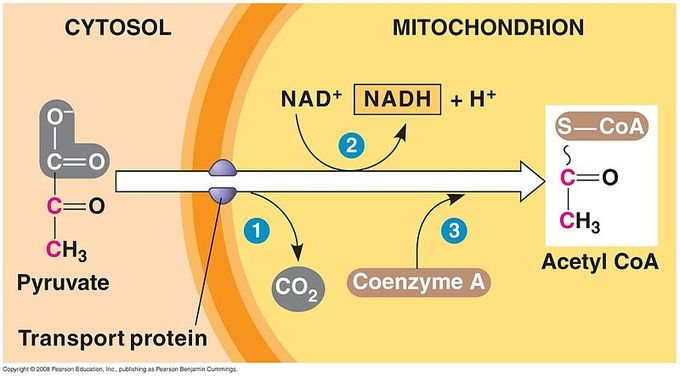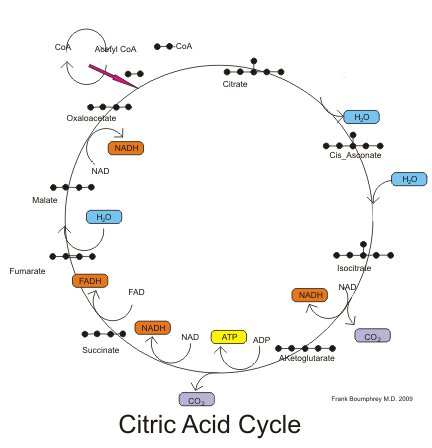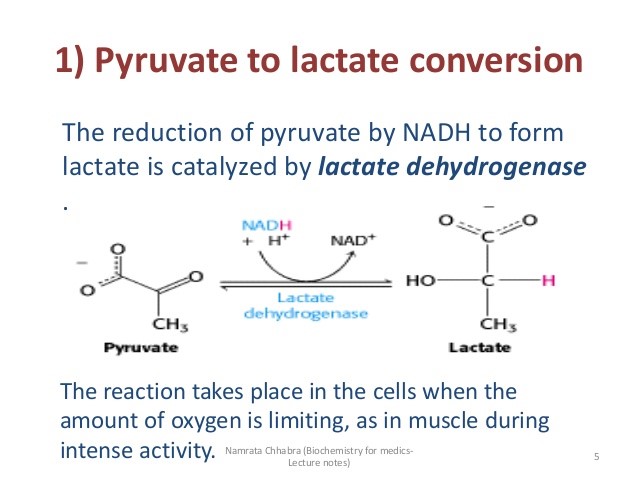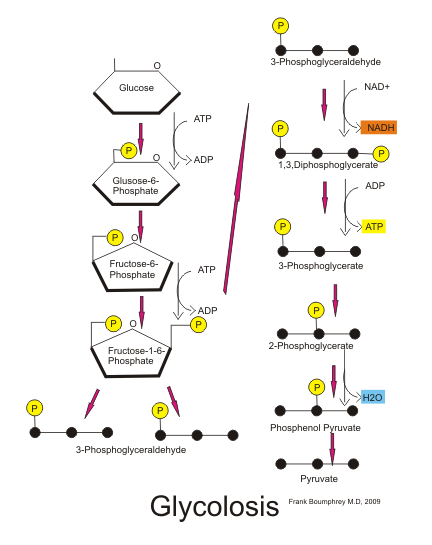We have written previously about the Warburg Effect, the observation that cancer cells “bypass normal cellular respiration, that is, glucose converted to pyruvate through glycolysis, and the sequential oxidation of pyruvate through the Krebs Cycle in the mitochondria. Instead, tumor cells divert pyruvate to lactate dehydrogenase (LDH), which reduces pyruvate into lactate.”
The increased production of lactate provides for the acidic microenvironment in the tumor, which may facilitate invasion and suppress immune attack.
Recently, however, researchers have found that lactate is NOT always expelled from the cell. Rather, it enters the mitochondria:
“Our study shows that—at some times in some cancer cells—lactate can be used productively to make other nutrients the cell needs,” said Gary J. Patti, Ph.D., of Washington University in St. Louis, who led the research. By tracking the chemical transformations of lactate within cancer cells, the researchers found that, rather than being expelled from cells, lactate was being taken up by mitochondria, which are considered the energy factories of cells. “It’s possible that the productive use of lactate is occurring in the mitochondria,” said Dr. Patti.
Energy production in wild type cells
As a review, normal cells convert glucose to pyruvate in the cytoplasm (anaerobically) in a process called glycolysis; then, pyruvate enters the mitochondria and is converted into Acetyl Coenzyme A, which initiates the Krebs (Citric Acid) Cycle to generate ATP (aerobically). The entire process produces 36 molecules of ATP per glucose molecule metabolized.
Pyruvate is then converted to acetyl coenzyme A to initiate the Citric Acid Cycle.

Figure 2. Each pyruvate molecule loses a carboxylic group in the form of carbon dioxide. The remaining two carbons are then transferred to the enzyme CoA to produce Acetyl CoA.
https://www.boundless.com/biology/textbooks/boundless-biology-textbook/cellular-respiration-7/oxidation-of-pyruvate-and-the-citric-acid-cycle-75/breakdown-of-pyruvate-359-11585/images/breakdown-of-pyruvate/

Figure 3. Pyruvate enters to mitochondria to start the Kreb’s Cycle. https://en.wikibooks.org/wiki/Medical_Physiology/Basic_Biochemistry/Sugars
Cancer cell metabolism
Cancer cells thrive in hypoxic environments by metabolize glucose anaerobically, that is, in the cytoplasm with the conversion of glucose to pyruvate. The pyruvate is then shunted to lactose dehydrogenase to produce lactate.

Figure 4. Pyruvate to lactate under hypoxic conditions. https://www.slideshare.net/namarta28/fate-of-pyruvate-a-quick-review
By foregoing the aerobic phase glucose metabolism, cancer cells are very inefficient – only four ATP molecules are produced during glycolysis, and 32 are produced during the Krebs cycle.
“We have wondered why a cancer cell would be so wasteful,” said Dr. Patti. Cancer cells have been thought to compensate for the lost energy by “revving up” the first phase and breaking down glucose rapidly, as a result secreting relatively large quantities of lactate, he noted.
Researchers discovered this by tagging lactate – they found that virtually every lipid in the cell was tagged. This meant that lactate was entering the mitochondria:
The results were surprising—nearly every lipid in the cell ended up being tagged as a metabolic product of lactate. “We saw thousands of labeled signals,” said coauthor Amanda Ying-Jr Chen, Ph.D., who is a postdoctoral fellow in Dr. Patti’s lab. “It was very unexpected and exciting.”
To confirm the findings, the researchers conducted additional experiments with individual mitochondria in cancer cells. These experiments showed that lactate can be transported into mitochondria and used to generate nutrients for the cell.
The results have raised many new questions. “We still need to figure out when and how lactate is getting into mitochondria,” Dr. Patti said.
This work is supported by findings in 2016 that demonstrate lactate serves as an energy source for human lung cancer in mice.


Carnosine reduces lactate production
so, how to stop the increasing of lactate?